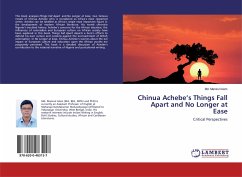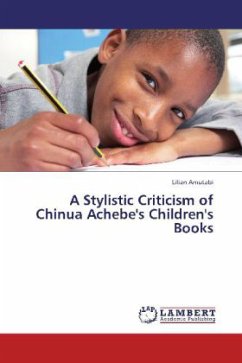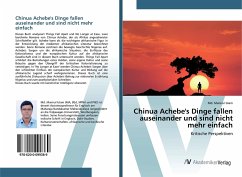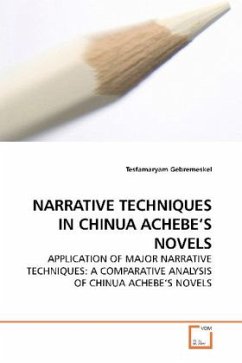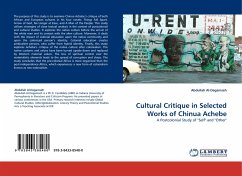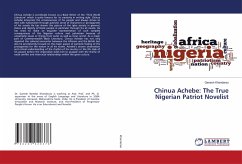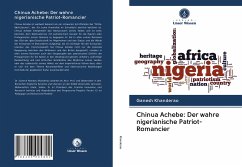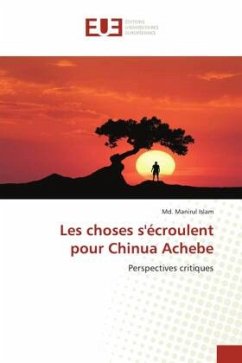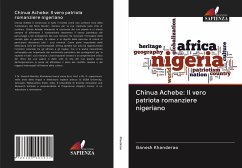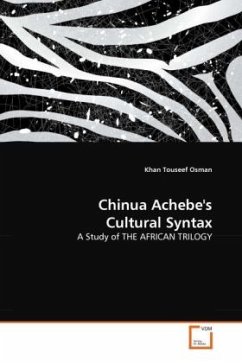
Chinua Achebe's Cultural Syntax
A Study of THE AFRICAN TRILOGY
Versandkostenfrei!
Versandfertig in 6-10 Tagen
32,99 €
inkl. MwSt.

PAYBACK Punkte
16 °P sammeln!
THINGS FALL APART, NO LONGER AT EASE and ARROW OF GOD, Chinua Achebe's first three novels, popularly known as THE AFRICAN TRILOGY, truly sounded the first distinct voice of confronting the prevailing colonial discourse in postcolonial Africa. Achebe's perception of Africa as an insider and the articulation of this experience in the language of the colonizers posed him a crucial politico-linguistic dilemma, which he attempts to resolve in a hybrid English that reflects his struggle to overcome the complex of using the oppressors' tongue, thereby creating his own brand of English. Ironically, th...
THINGS FALL APART, NO LONGER AT EASE and ARROW OF GOD, Chinua Achebe's first three novels, popularly known as THE AFRICAN TRILOGY, truly sounded the first distinct voice of confronting the prevailing colonial discourse in postcolonial Africa. Achebe's perception of Africa as an insider and the articulation of this experience in the language of the colonizers posed him a crucial politico-linguistic dilemma, which he attempts to resolve in a hybrid English that reflects his struggle to overcome the complex of using the oppressors' tongue, thereby creating his own brand of English. Ironically, the construction of this counter colonial language is eventually found to be deconstructing the very language consciously constructed. Although successfully addressing the fundamental difference between the Western and Igbo ways of perception on the semiotic level, the novels betray the symptoms of psychological fractures caused by long colonial presences and pressures patent in their culturalambivalences, linguistic hybridities and textual ambiguities. The complex weave of the study tends to pull in a number of perspectives, involving frequent interdisciplinary crossovers.



